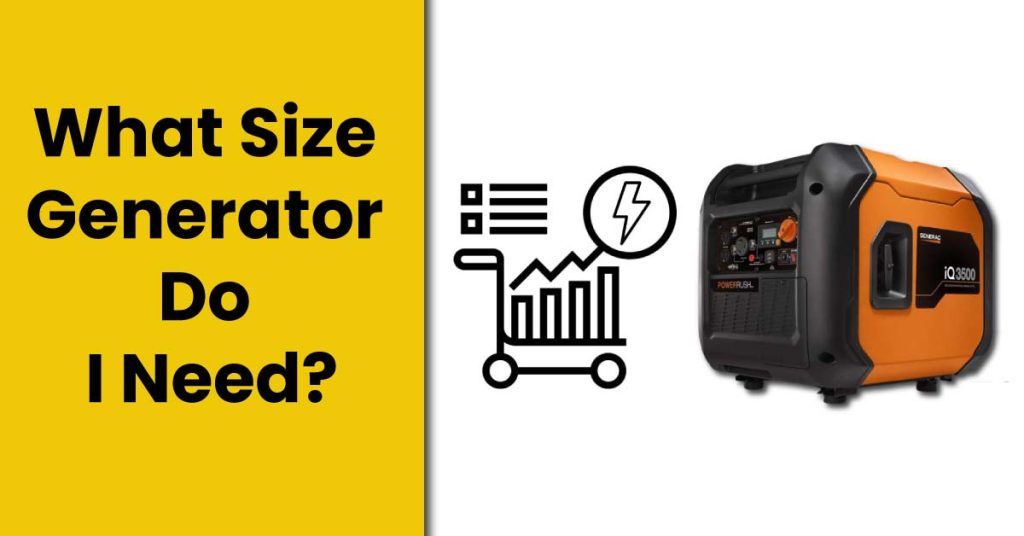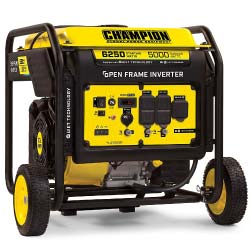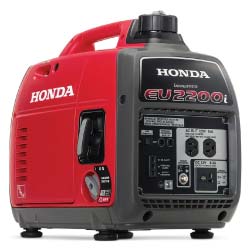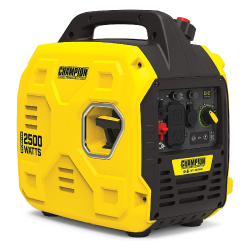What Size Generator Do I Need? – Easy Calculation
In this helpful guide, we have covered the following topics: what size generator do I need for frequent and rare power outages, how to calculate wattage for a home, RV, and the work site, and the difference between running and starting watts. This article will help you choose the right size generator for your home or outdoor usage.
Due to frequent environmental disasters like hurricanes, floods, extreme colds, and tornadoes, power outages are becoming common. Even most typical American households lose power for about 3 to 4 hours once or twice a year.
Due to such reasons, the growth in the sale of portable generators and standby generators has increased to 5% from 3% over the past 5 to 6 years.
A generator has to keep the power going, but generators come in many sizes and weights, fuel types, prices, and wattages. So the following questions do come to mind:
Before we answer these questions, you need to calculate the wattage of the appliances that you are going to use and need to know about the difference between running watts and starting watts.

Difference Between Starting Watts And Running Watts
Starting, surge, or peak watts are the wattages required for a motor-driven appliance to start. Motor-driven appliances need a few extra watts from their capacity to overcome inertia and start, that is why you would see surge/starting watts mentioned on the generator spec sheet, and the appliance spec sheet.
Running watts refer to the continuous wattage required for the appliance to run.
What Size Generator Does Need For Power Outages?
It depends on the power need of your house, the number of power outages your area receives, and whether you need a portable generator or a whole-house standby generator.
If your total need for power is between 4000 to 5000 running watts, then a 7000-watt generator (conventional or portable) should provide enough running and starting watts to run most of your appliances.
If your power requirements are more than 7000 watts and your area receives frequent power outages, then a whole-house standby generator is an ideal choice.
Standby generators start automatically within seconds when the power goes out, they are silent, efficient, provide clean power (less than 3% harmonic distortion, and are reliable for a clumsy guy like me.
They are a bit costly with the extra installation cost and they are not portable. But, if you talk about huge power needs frequently, then standby generators are preferred.
Let’s Explore our guide to Use A Generator During A Power Outage
Our Recommendations
1. Champion Power Equipment 6250 – Best 5000 Watts Generator
FEATURES & SPECS

2. Honda EU2200i 2200 Watt Inverter Generator – Best 2000 Watt
FEATURES & SPECS

How Big Of A Generator Do I Need – How To Calculate Watts For Generator?
To calculate the wattage of your appliances, you need to multiply volts into amperes. In simple words, the wattage is calculated by multiplying the voltage of an electrical appliance’s load capacity in the amperage.
Watt = Volts x Amps
Most of the information on watts, volts, and amps is mentioned on the sticker inside your fridge. For example, for an old fridge, 115V and 6.5 amps were the standards:
Watts = Volts x Amps
= 115 x 6.5
Watts = 747.5
After learning about the running and starting watts, you estimate the energy needs of your home by calculating the running and starting watts of the appliances you need to run. Then, will discuss the size of the generator.
Following are some of the common appliances we need to power:
For Home:
| Appliance | Quantity | Peak watts | Running watts |
|---|---|---|---|
| A standard fridge | 1 | 1200 | 200 |
| Microwave oven | 1 | 1000 | 1000 |
| Coffee maker | 1 | 600 | 600 |
| AC (10,000) BTU | 1 | 4400 | 3000 |
| Electric blanket | 1 | 200 | 200 |
| Computer | 1 | 250 | 250 |
| Incandescent lights | 5 | 300 | 300 |
| Sump Pump | 1 | 800 | 1500 to 300 |
| Well pump | 1 | 1000 | 2000 |
Check out our guide about How To Hook Up A Generator To House
For Tools:
| Appliance | Running watts | Surge watts |
|---|---|---|
| Circular saw | 1400 | 2300 |
| Electric drill | 600 watts | 600 watts |
| Portable air compressor ½ HP | 1000 | 1600 |
| Chainsaw | 1500 | 1500 |
| Bench grinder | 1400 | 2500 |
For RV:
| Appliance | Running watts | Surge watts |
|---|---|---|
| RV AC Unit (10,000 BTU) | 1600 | 1000 |
| RV AC UNIT (15,000 BTU) | 3300 | 2000 |
| RV FRIDGE | 600 | 180 to 190 |
| Laptop | 250 | 250 |
| TV | 120 | 120 |
| Incandescent lights | 60 | 60 |
- # 1: Make a list of the devices you need to run
- # 2: Calculate the running and starting watt of each appliance, and make a total.
- # 3: Choose a generator slightly bigger than your needs. Running a generator to its full load can shorten its lifetime, so a bigger generator than actually needed is always a smart decision.
If the total starting and running watts are below 4000, a 4000-watt generator would do the job.
If the running and starting watts are close to 9000, purchase a 10,000-watt generator.
What Size Generator Do I Need To Run A Refrigerator?
Refrigerators take about 1000 to 1200 surges at the beginning, while the compressor kicks in, it drops to 200 and something running watts. I never had any problem while running my fridge on a 2000-watt unit in my RV.
So a 2000-watt generator is enough to run a refrigerator.
What Size Generator Do I Need For My RV?
A 3000-watt or a 4000-watt generator is a better choice for an RV if you are going to Run a 10,000 BTU AC which takes about 1600 starting and 1000 running watts.
If the total running and starting watts are below 2000 watts for all the appliances you are going to run, then a 2000-watt or 3000-watt portable generator would do the job.
Recommended Generators For RV
Champion Power 2000961 2500W – Best Portable Generator for Camping
FEATURES & SPECS

How Big Of A Generator Do I Need For Frequent Power Outages?
If you live in an area prone to extreme weather that causes frequent and prolonged power outages, then a standby, large inverter, or portable generator with high wattage is better for you.
These three types have enough power to run all of your major appliances. If you want to run your appliances that are hardwired, connect the generator to your control panel.
How Big Of A Generator Do I Need For Occasional Or Rare Outages?
Large, midsized, or small portable inverters or conventional generators are a better choice for rare outages instead of investing in a huge standby generator.
Most inverter generators are compact and portable so you would have the luxury to use them somewhere else (camping and tailgating) if you are not using them in your home.

Alex Black is a seasoned electrical engineer with a remarkable 8-year track record specializing in appliances, generators, and transfer switches. With extensive hands-on experience in the field, Alex possesses a deep understanding of electrical systems and their intricate workings. Throughout their career, Alex has consistently demonstrated expertise in designing, troubleshooting, and maintaining various electrical appliances.
